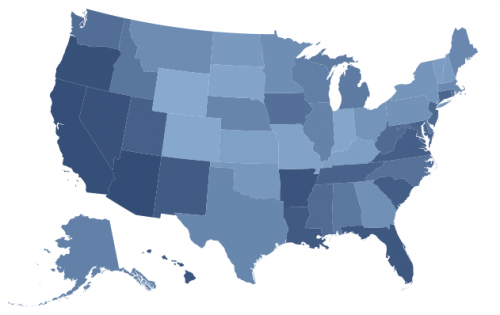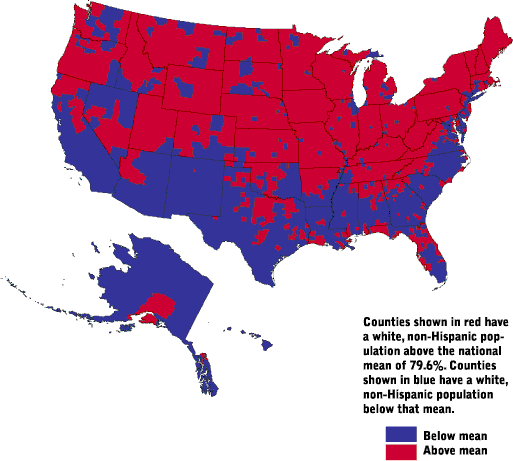Per the WSJ($):
Last week the House of Representatives expressed its
collective outrage over high gas prices by voting as a herd, 389-34, to
make gasoline "price gouging" a federal felony.
Really. This command and control legislation reads
like the kind of law passed by the old Soviet Politburo. If an oil
company is found guilty of charging a "grossly excessive" price for
gasoline, it could face a $250 million fine and its executives face
imprisonment. Even neighborhood service station owners could be
sentenced to two years in jail and a $2 million fine for the high crime
of charging too much at the pump.
So what is price gouging? What is the objective standard that we can all apply to our behavior to know clearly, before the fact, if our actions are legal or illegal?
One small problem is that no one in Washington can seem to define what
constitutes price gouging. Under the House legislation, the bureaucrats
at the Federal Trade Commission would define a "grossly excessive"
price and then, once prosecutors charge some politically vulnerable
target, juries across the country would decide who's guilty and who's
not. A Senate version, sponsored by Maria Cantwell of Washington,
contains terms like "excessively unconscionable price increases" and "a
gross disparity" between the normal price and the price during a
shortage or an emergency.
If this passes, there are two, and only two, ways this can be enforced:
- The standards remain incredibly vague, such that there is no objective way to know if you are guilty of a felony until you are in front of a jury listening to the verdict. Some juries will may decide 6 cents over cost is gouging, others may decide its 50 cents. But you won't know until you hear the jury's verdict.
- In an effort to deal with the problem of having no objective standard in advance, a federal bureaucracy is created to set detailed lists of allowable prices, essentially subjecting retail gasoline sales to price controls. The prices set by regulators will either be above the price the market would have set, meaning that the price-setting is a meaningless waste of money, or it will be less than that set by the market, such that gas shortages and lines will ensue.
These are the only two choices. You only have to look at past history with oil price controls, airline regulation, railroad regulation, wage and price controls, etc. to know just how bad this will end.
As Jeff Flake of Arizona, one of the brave 33 no votes, tells us: "None
of my colleagues actually believes this will reduce prices, and many
realize it will ultimately make shortages worse." Yet this is what
happens when petrified politicians allow mob rule to trump economic
common sense.
My company operates several retail gasoline outlets. We at best break even and probably lose money on the gas, but we continue to sell it to bring people into our stores and because there are so few other local retailers (we are in very rural areas). If this law passes, I am just not going to risk going to jail because some economically ignorant jury in the future can't figure out that gas is more expensive in rural areas or because some tragic and sympathetic figure decides to sue me. I'm out. And if someone observes that in the rural areas in which we operate, consumers will probably be worse off if we exit, then Congress should have thought of that before they passed this Marxist-populist legislation.
Up to now, it was for this and only this reason that I tended to vote Republican more than Democrat. I held my nose and looked past family-values-based censorship and stupid drug law enforcement and regulation of sexual choices and xenophobic immigration policies and all the rest of the conservative baggage solely because Republicans tended to pass less stupid dumbshit socialist destructive economic regulation than the Democrats.
I've always told people that as a libertarian for whom neither party is internally consistent, you just have to pick the issues you vote on. If I was gay or needed frequent abortions or was Howard Stern, I would vote Democrat. Trying to run a small business against a growing tidal wave of government taxes and regulations, I often vote Republican. If every Republican was (were? I always get that subjunctive thing mixed up) like Jeff Flake, I would continue to vote for them. Right now, though, I may go back to sitting on my hands or vote for whatever goofy person the Libertarian Party has put forward.
I just can't figure out who is making all these imagined profits. I don't know any retailers of gasoline who make any real money on gasoline sales. For god sakes, typical gasoline margins are 5-12 cents a gallon, and the credit card processing fee alone at $3 a gallon uses up 9 cents of that! And even the great Satan ExxonMobil, in their greatest most profitable quarter ever, made a profit of 9.7% of sales, barely above the US industrial average and well below that of most well-known consumer products companies. If anyone is making profits they don't deserve, it is Hugo Chavez and the Saudi princes, but I don't think there is much we are going to do about that. And, if one is concerned with pricing in emergencies, I have actually pleaded for gouging when the alternative was not being able to find gas at all.
If Congress really wants to do something about gas prices, it could consider:
- Reducing gas taxes, which take more our of a gallon of gas than any private entity makes in profit
- Opening up exploration in the ANWR and on the US east coast
- Making it easier to build new refining capacity in the US
- Restructuring rules to reduce the number of EPA-mandated unique local gasoline blends are required
- Remove the 40+ cent tariff on important ethanol, which federal rules effectively require in gasoline and which is in short supply domestically
By the way, in the past several weeks, Congress has rejected legislation on every one of these items in favor of this silly gouging legislation. The WSJ offers this final thought:
If service stations are guilty of extortion because their prices are
rising more than their costs, then are we to have pricing police
preventing homeowners from selling their houses for two or three times
what they bought them for, or movie theaters from charging $6 for
popcorn that costs 25 cents to produce, or Barbra Streisand from
commanding a $1 million fee for a single performance? Now that
Republicans have surrendered to the political expediency of price
controls on big oil, they won't have much standing to stop Democrats
from imposing price ceilings on pharmaceutical drugs, school supplies,
medical equipment, and the like.


